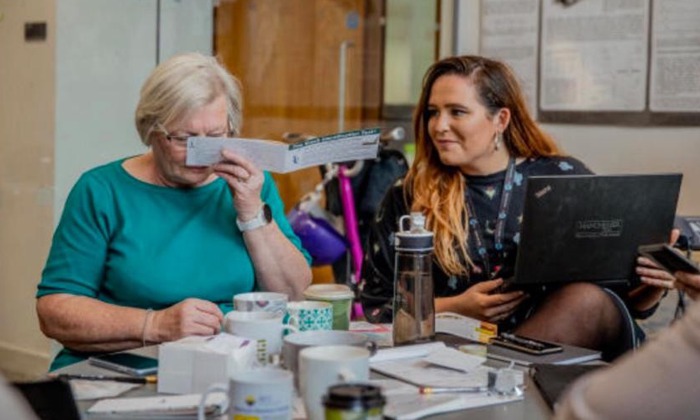'Sniffing out' Parkinson's: Three-minute skin swab breakthrough
07 Sep 2022
A woman who found she could detect Parkinson's through smell has inspired Manchester scientists to develop a swab test that could be used to diagnose it

Joy Milne knew her husband Les had Parkinson's more than 12 years before he was diagnosed when she identified a change in the way he smelled.
Now a Manchester team, working with Joy, has developed a simple skin-swab test which they claim is 95% accurate under laboratory conditions when it comes to telling whether people have Parkinson's.
Professor Perdita Barran who led the research said: “We are tremendously excited by these results which take us closer to making a diagnostic test for Parkinson's disease that could be used in clinic.”
The researchers used cotton swabs to sample people and identify the compounds present with mass spectrometry. The method developed involves paper spray ionisation mass spectrometry combined with ion mobility separation and can be performed in as little as three minutes from swab to results.
The study has arisen from Joy's observations who discovered that she can distinguish Parkinson's disease in individuals from a distinct body odour before clinical symptoms occur.
Joy has hereditary Hyperosmia – a heightened sensitivity to smells – which has been exploited to find that Parkinson’s has a distinct odour which is strongest where sebum collects on patient’s backs and is less often washed away.
The Manchester team now see this as a major step forward towards a clinical method for confirmatory diagnosis of Parkinson’s, for which to date there is no diagnostic test based on biomarkers.
Professor Monty Silverdale, Clinical Lead on this study said: "This test has the potential to massively improve the diagnosis and management of people with Parkinson’s disease."
Joy's husband Les died in 2015, and she says his last wish was for her to investigate further her sense of smell.
- The charities Parkinson’s UK and the Michael J. Fox Foundation as well as the Royal Society funded this research, which has studied the sebum from people with and without Parkinson’s. You can read more about the research on our newsroom.
